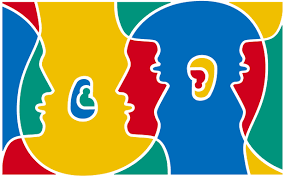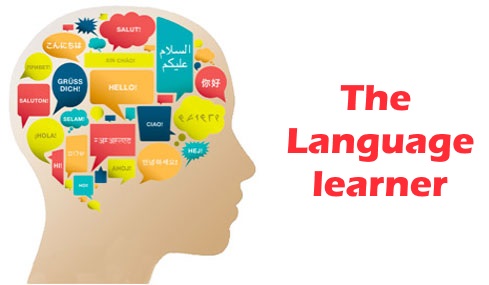Making Language Learning Easier
Written by Dr. David E. Shaffer
As language teachers, we all know – contrary to what some coursebook publishers and language schools would have us believe – that learning a second language is not easy. There is no shortcut. No magic formula. Learning a language is a long-term project, requiring a considerable investment of time and effort. However, not everyone learns the same language at the same rate. It has little to do with IQ. Rather, it has a lot to do with how the learner approaches the language learning task and the strategies that are employed in learning it. Let us call it a “QQ,” a quality quotient, the knowledge of the most effective ways of approaching language learning. As language educators, it is our job to see that our students are made aware of these strategies, rather than holding to the antiquated belief that language learning is purely a matter of rote memorization.
So what are these methods of making the language learning process a bit faster and less arduous? Here are some of the ones that I think are most important.
THE LEARNER MINDSET: MOTIVATION
It is easy to say “Motivate your students!” But in a learning environment such as the Korean context, where English study is mandated from elementary school onwards, it is easy for that initial novelty-induced enthusiasm to dissipate under incessant instruction based on vocabulary-and-grammar-rule memorization and testing. Students need goals to strive for; they need a reason for studying English or any second language. “Because you have to” just does not cut it. Students need long-term, mid-term, and short-term goals, and they need to be involved in making them. “To be like Ban Ki-moon” may work for a sixth-grader; “to head an international business” may suit one later in life. Goals should be realistic and attainable to sustain motivation. It is essential that teachers help students realize the importance of learning English and give them direction in setting personalized language learning goals.

BEING ORGANIZED
Good organizational skills are important; the good language learner has these. Good language learners (let us call them GLLs) set for themselves regular and realistic language learning schedules, and determine the focus of each study session. Granted, this is difficult for the young learner, so teacher support is essential for the development of these skills. The younger the student, the greater the need of support. It is good for language learners (LLs) to keep a record of their own learning. This could involve anything from a simple notepad and pencil to a blog. Records should be kept of language items (new vocabulary, chunks, collocations, pronunciation, etc.), but LLs should also keep a record of questions they have about the language, about their learning, about their learning problems, and reflect on them.
BE BRAVE, MAKE GUESSES, TAKE CHANCES
Language learning is not best suited for the safety cautious. GLLs will boldly go where they have not gone before. They will seek out opportunities to interact with the language they are learning: finding appropriate-level reading materials, listening to the radio, watching TV and movies, seeking out people to talk to. Teachers can help by making suggestions as to what materials are best and what places to go to. When confronted with a new word or phrase while reading, GLLs will not be discouraged, as they will consider the context in which it is used and make a guess at its meaning. Confirmation will come through further reading. GLLs also take chances in using the new language. They will try out using new words and phrases whose scope of meaning and use have not yet crystalized in the learner. They will start up conversations with new faces. They will boldly step into arenas where they had never set foot before.

READING IS ESSENTIAL
The GLL is a good reader. Consider the people who are most successful in almost any field, and you will find that they read a lot. Similarly, GLLs read a lot. It is a great source of second language input. Reading material that is easy (i.e., at the learner’s proficiency level) and interesting (i.e., something the learner wants to read) is essential and enjoyable. The teacher must make learners aware of this and direct them to sources of level-appropriate reading materials. (More and more are becoming available for free on the Internet.)
EMBRACING UNCERTAINTY
The GLL is still a language learner and as such will regularly be confronted with situations that are going on and language that is being spoken that can be perplexing. Not understanding can be frustrating, but the GLL accepts this uncertainty and adjusts to it. A GLL realizes that this is a normal part of the language learning process. The teacher can be enabling by encouraging LLs to embrace the uncertainties in their second-language lives.

THE TEACHER AND THE AUTONOMOUS LANGUAGE LEARNER
There has been a lot of talk about autonomous language learning in recent years. One may think that this means the student studies alone and the classroom teacher has nothing to do. On the contrary, the teacher has more to do! Autonomous learning is mainly an out-of-class activity supplementing classroom coursework. Whereas the teacher may have an understanding, the LL for the most part does not. One very important task for the classroom teacher is to instruct students in the importance of autonomous learning, and what they can and should do to become autonomous language learners. Technology in many ways is making language learning easier for both the teacher and the learner, but one role that is still of the utmost importance is for teachers to inform their students of the best strategies to use to become good language learners and make the language learning process easier and more enjoyable.
The Author
David E. Shaffer is vice-president of the Gwangju-Jeonnam Chapter of Korea TESOL (KOTESOL). On behalf of the chapter, he invites you to participate in their teacher development workshops at their monthly meetings (always on a Saturday). For many years, Dr. Shaffer has been a professor of English Language at Chosun University. He is a long-time member of KOTESOL and a holder of various KOTESOL positions; at present he is national president. Dr. Shaffer credits KOTESOL for much of his professional development in English language teaching, scholarship, and leadership. He is board chair at the GIC and also editor-in-chief of the Gwangju News.



